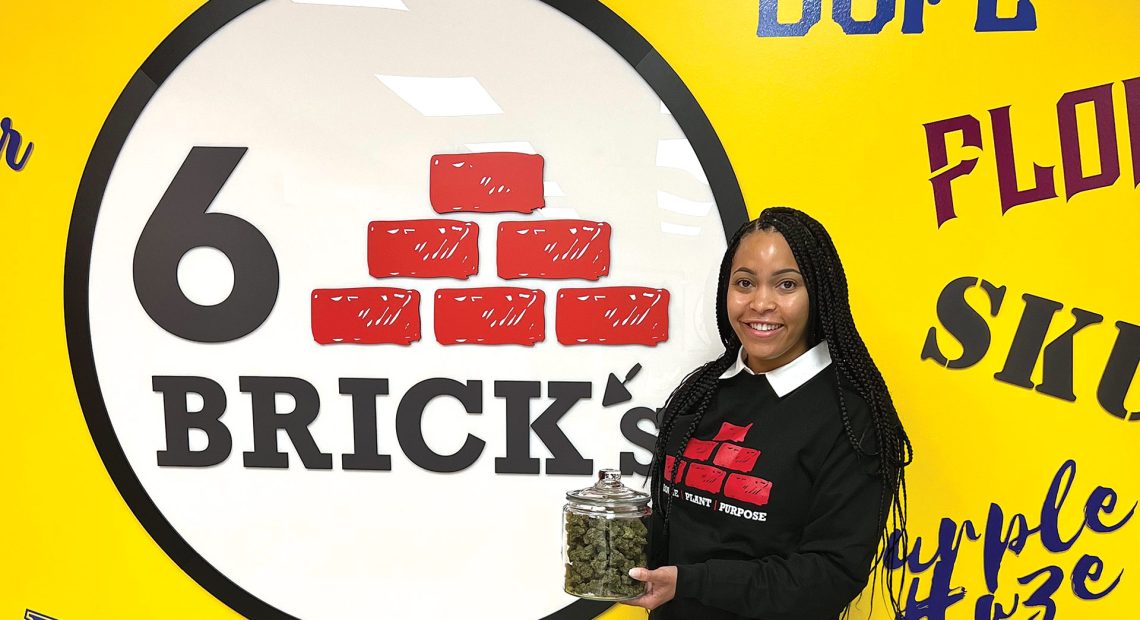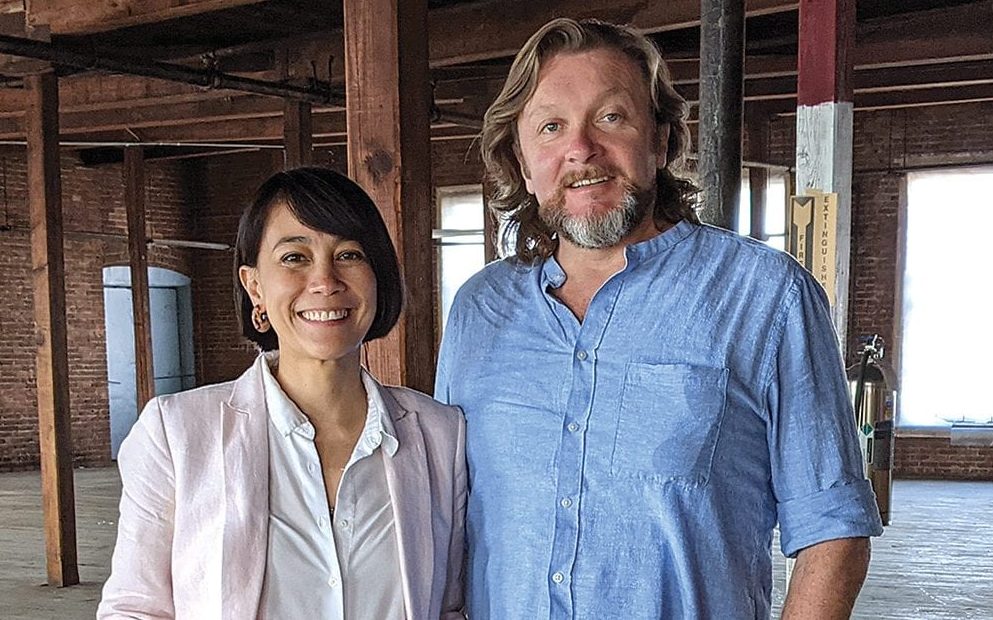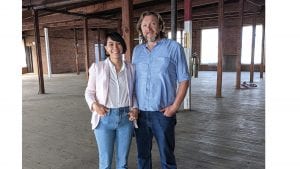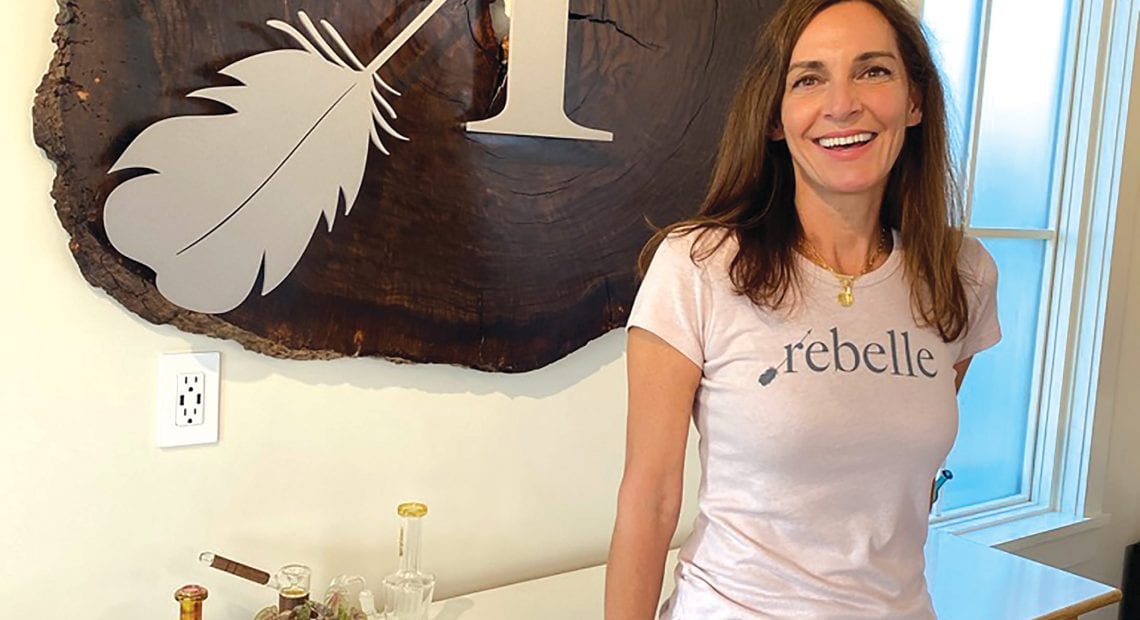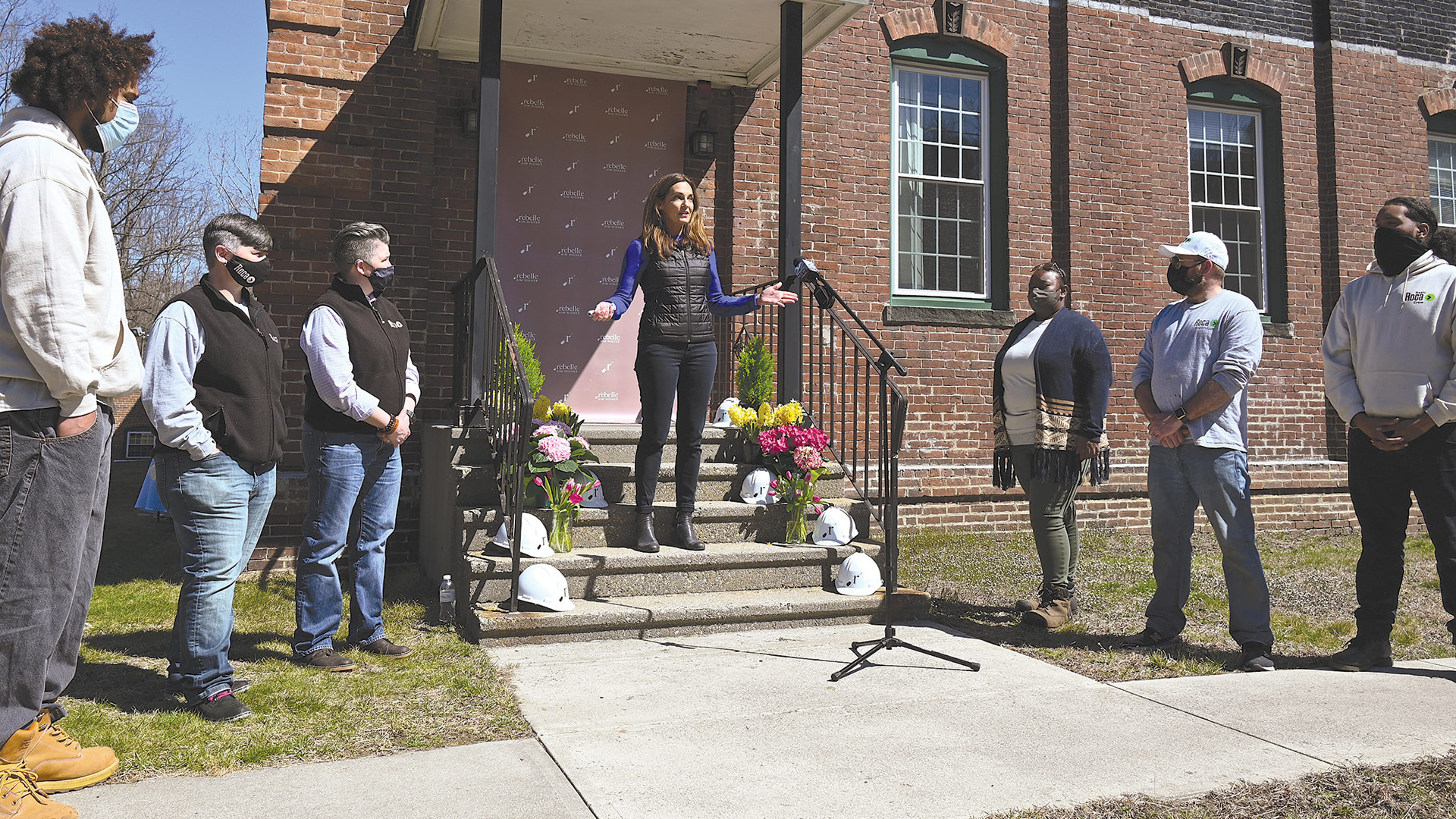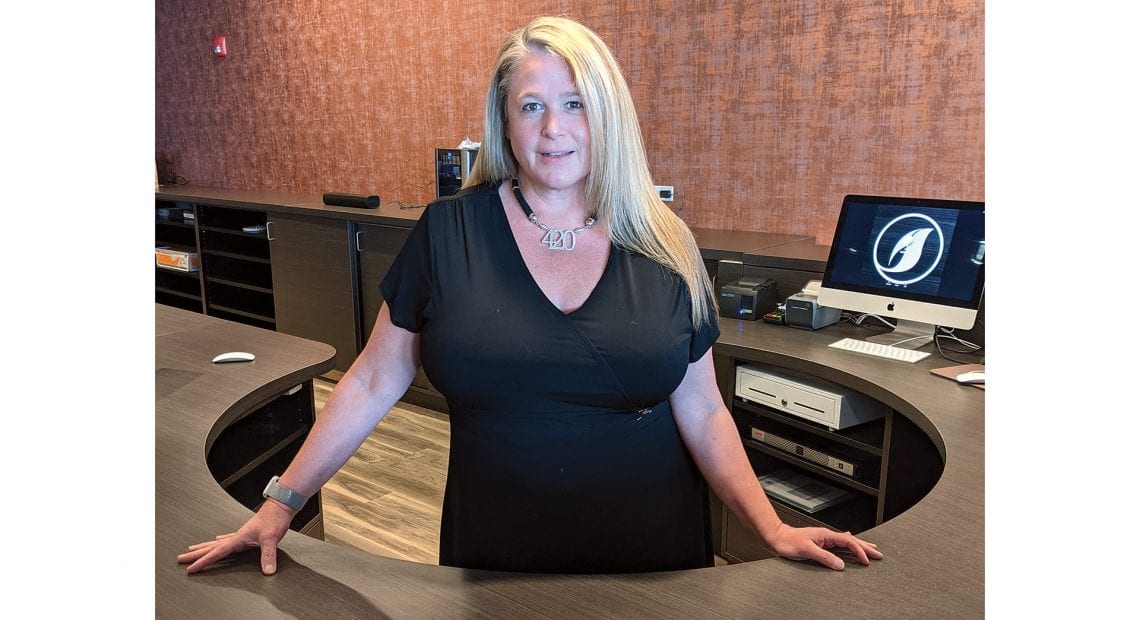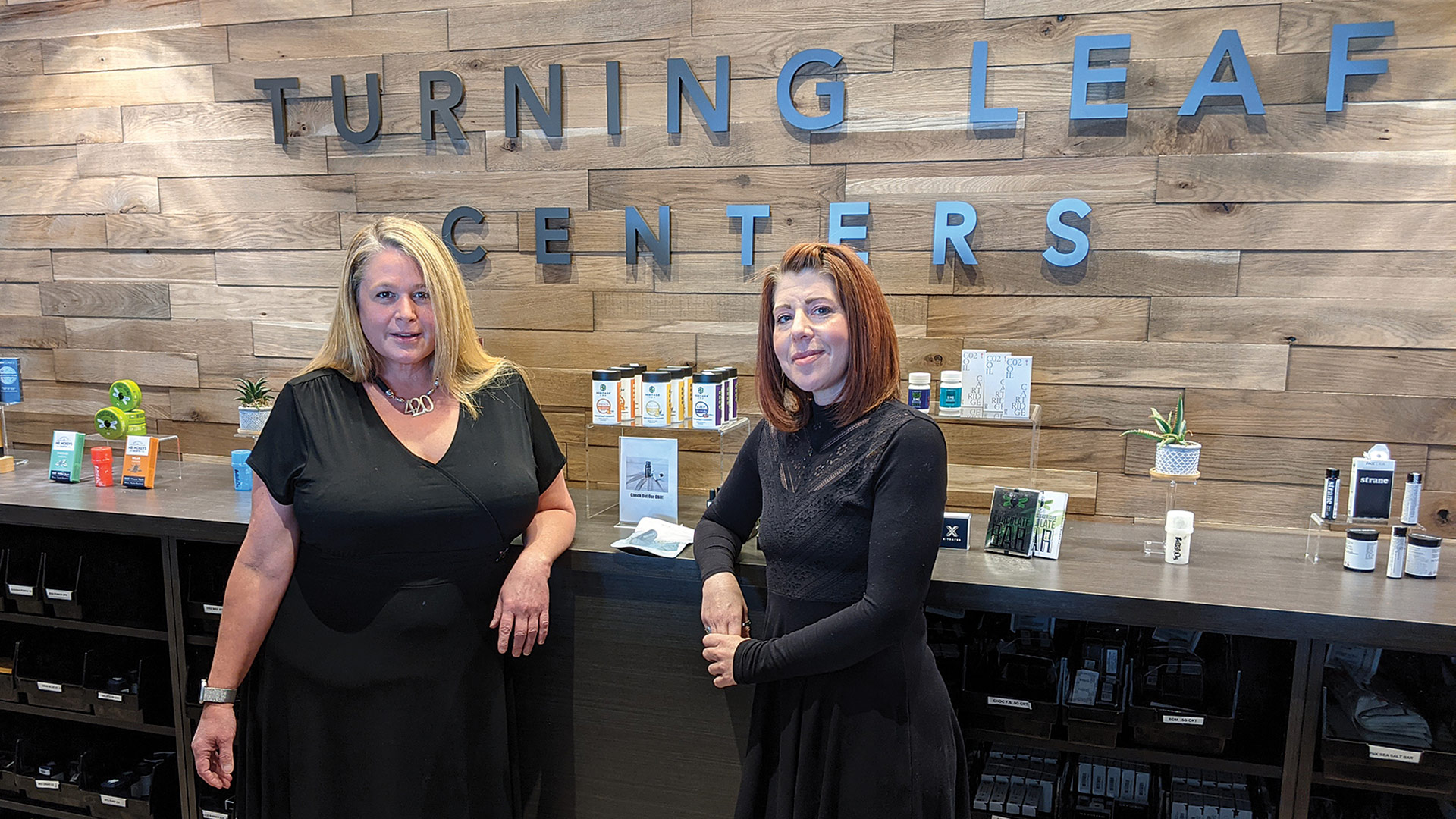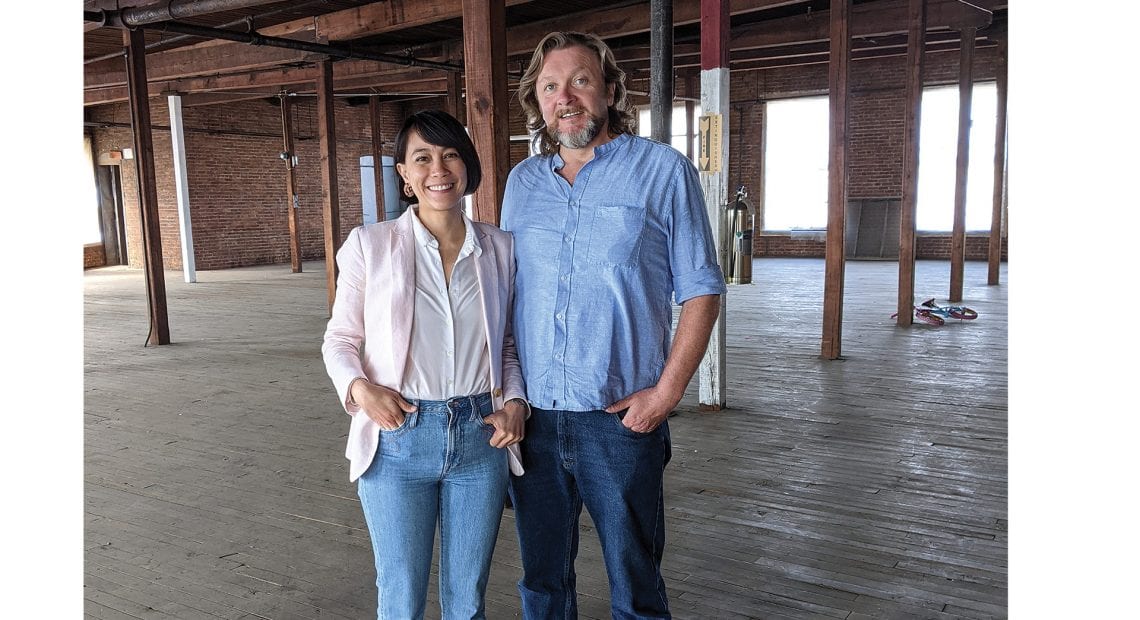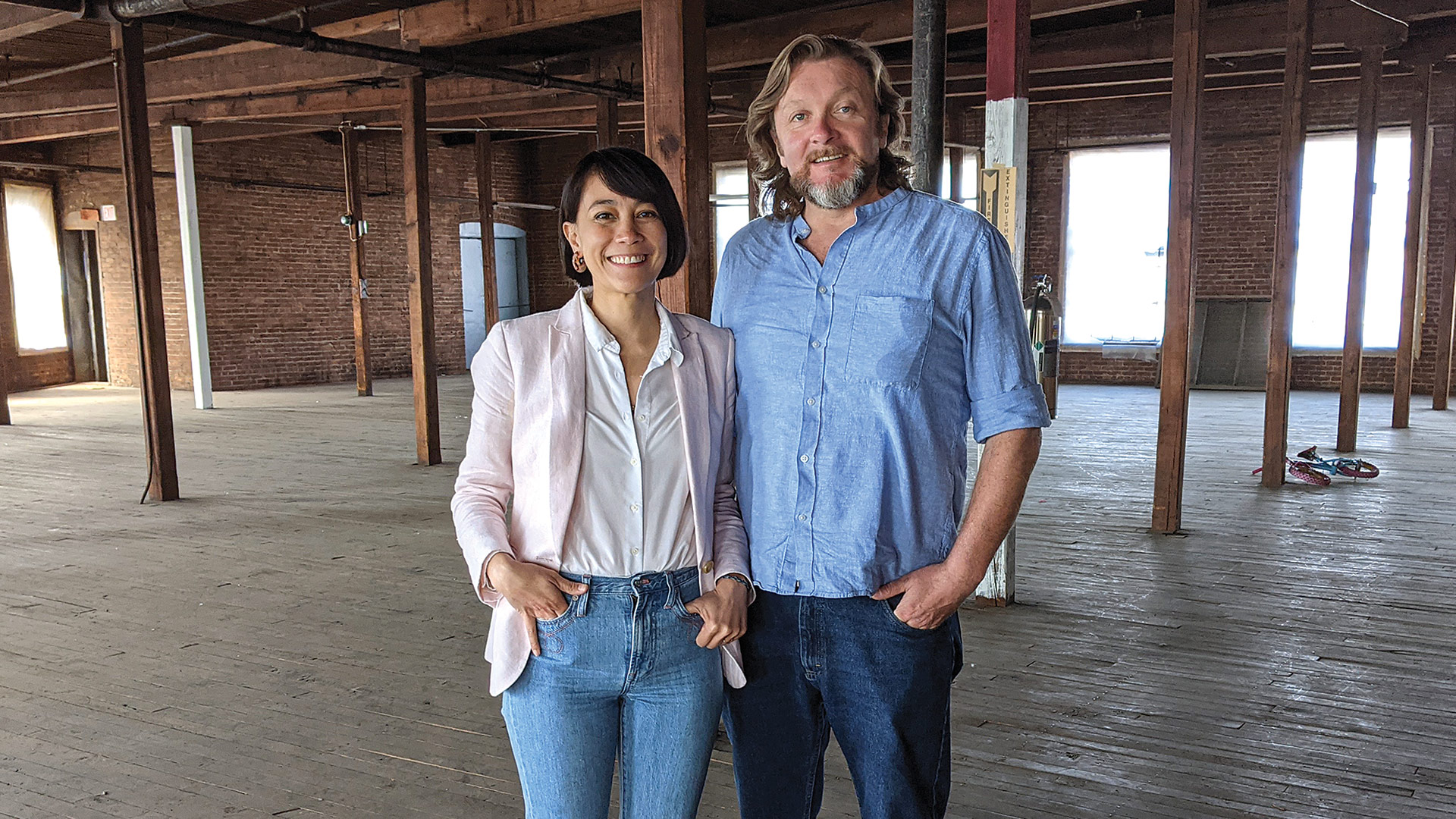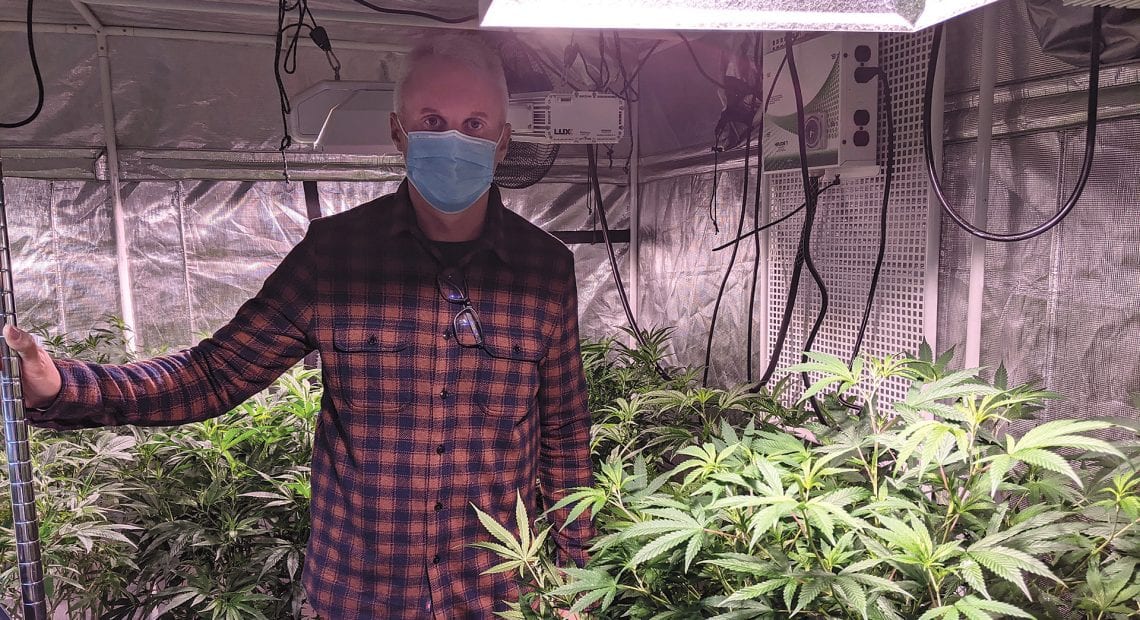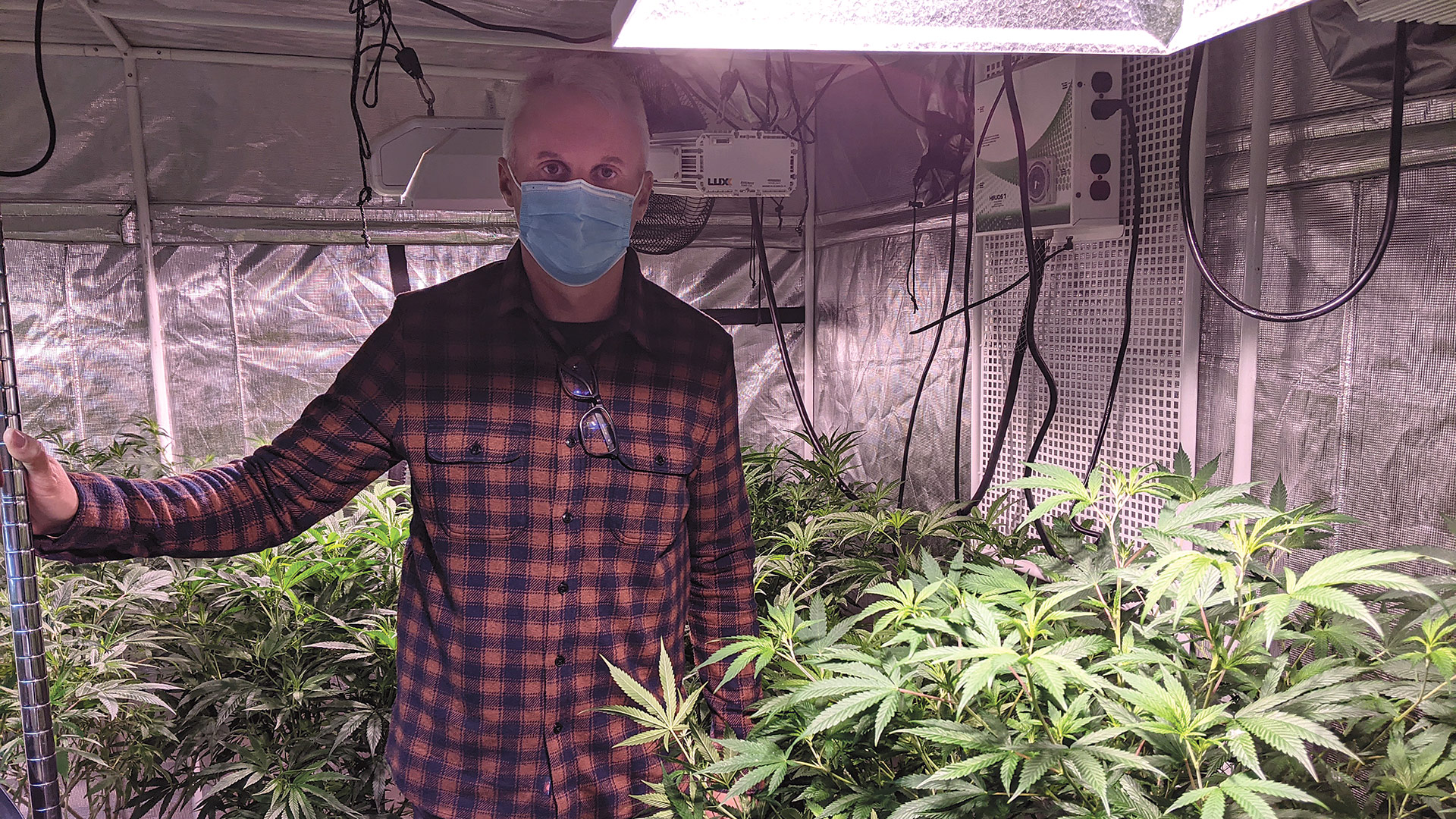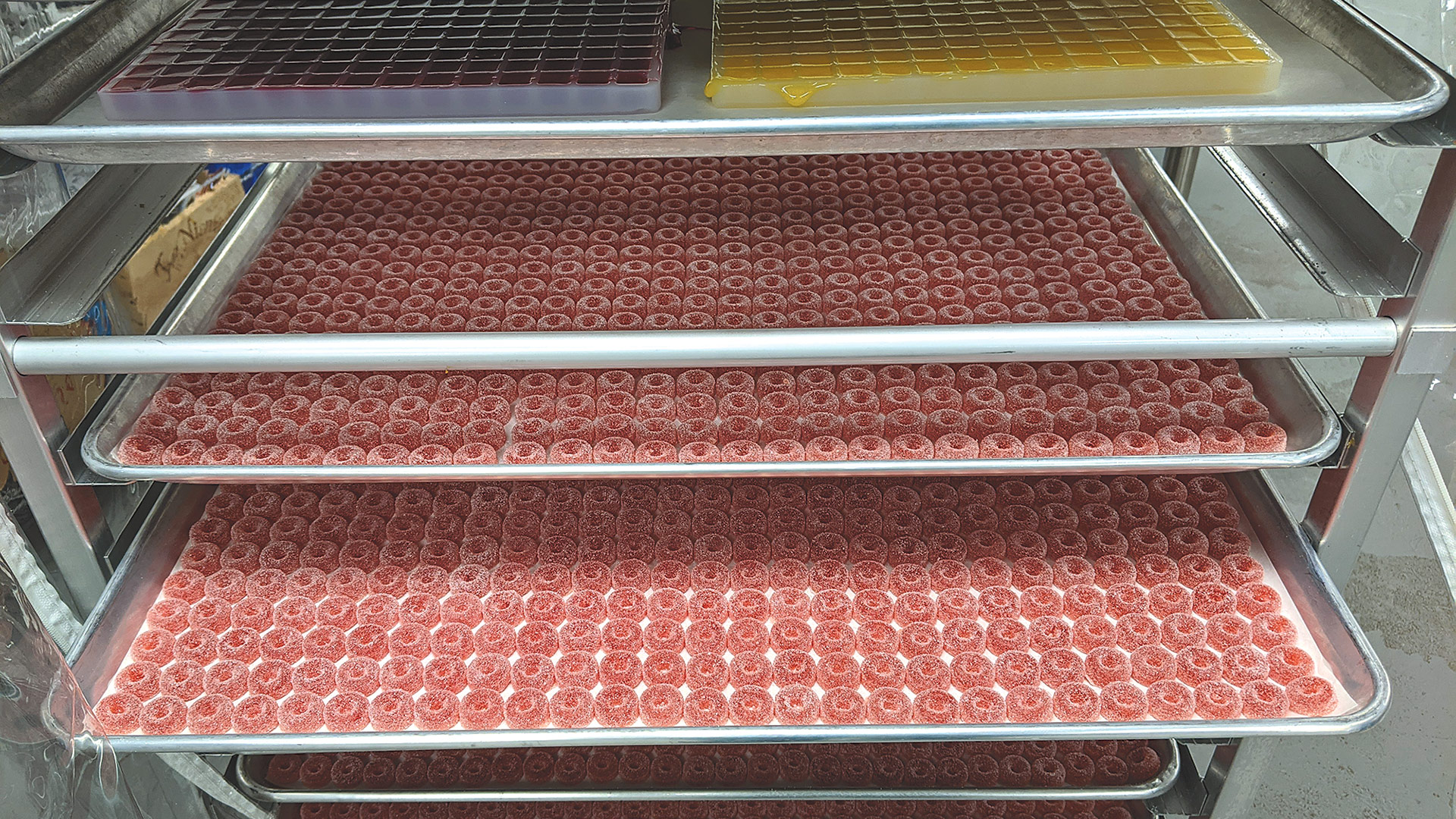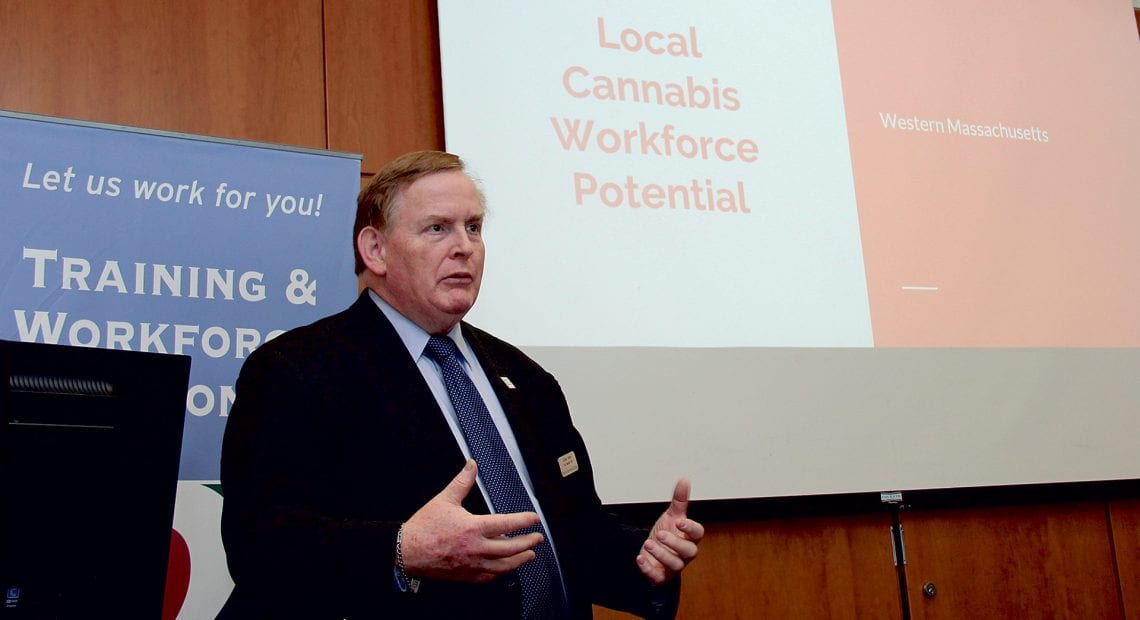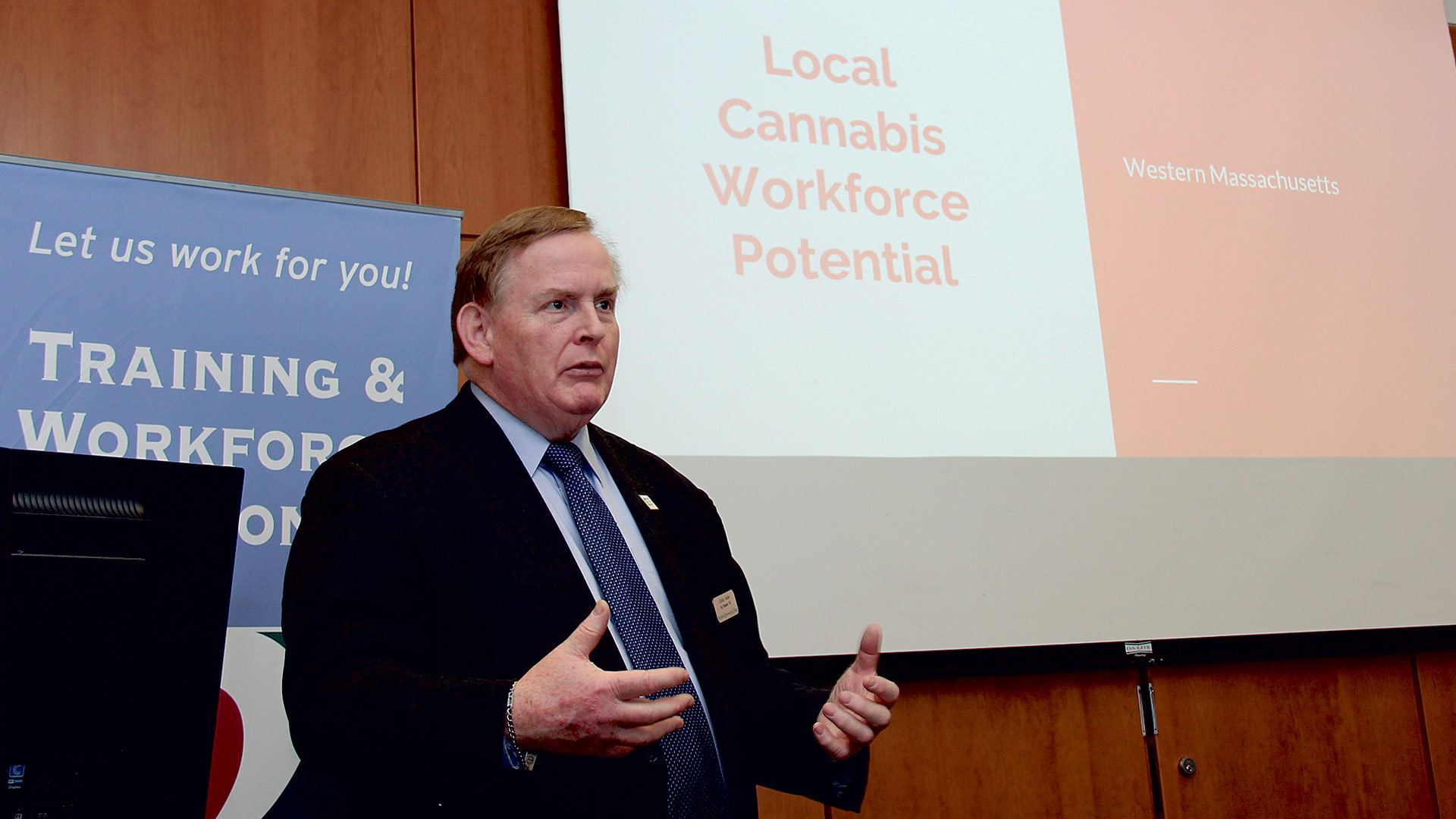What’s Next for Cannabis?
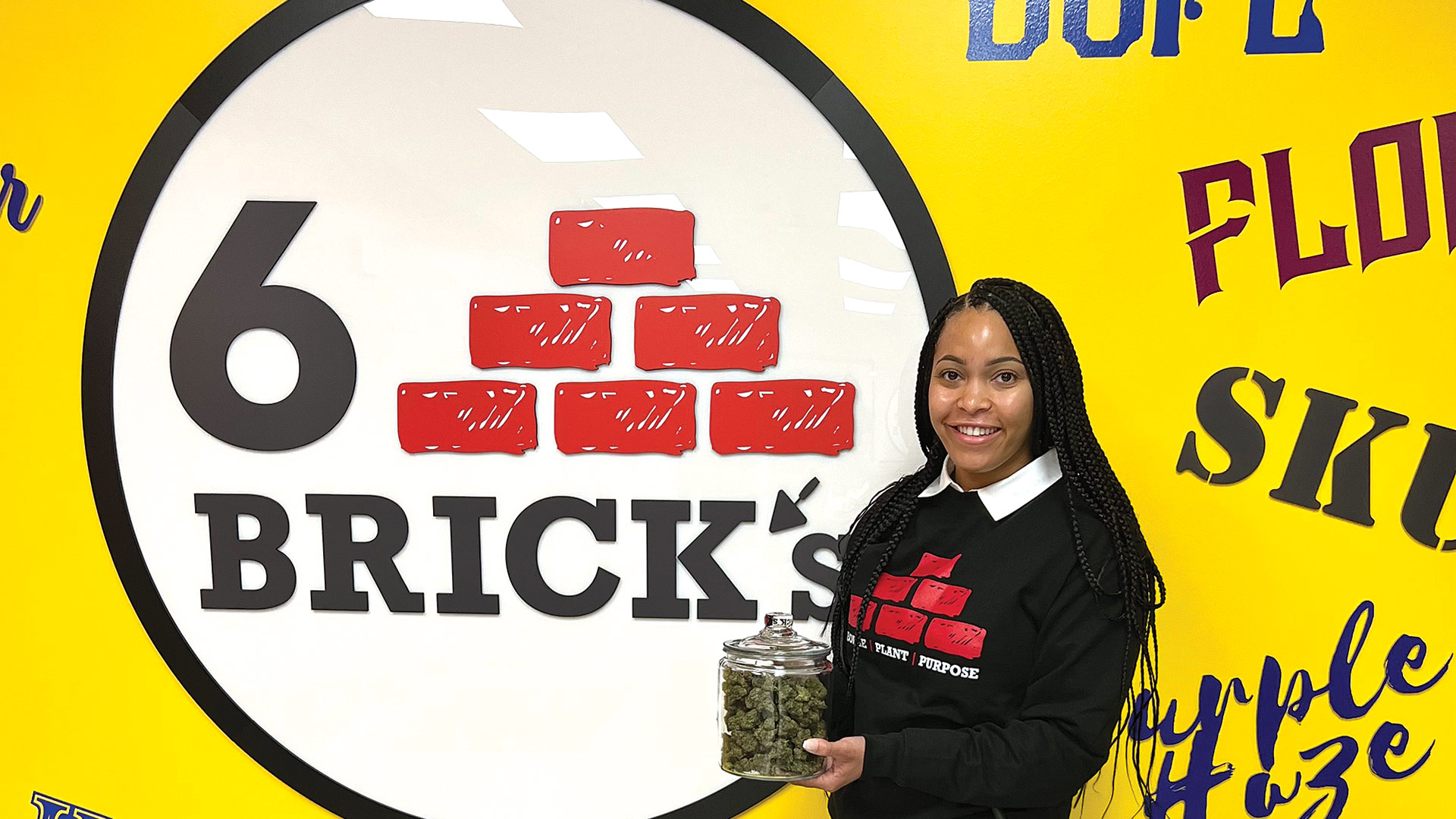
Payton Shubrick says she understood she was entering an increasingly challenging market for cannabis sales when she opened her doors last year.
By the time Payton Shubrick opened the doors to 6 Brick’s Cannabis Dispensary in Springfield last fall, she was well aware of how challenging the business was becoming.
“The market is getting tougher across the board in Massachusetts,” she told BusinessWest. “Gone are the days when you could open a dispensary and just have people lined up. Gone are the days when cultivators could guarantee sales. We’re seeing that you must earn customers’ loyalty and have a competitively priced product and have decent quality to do well in the Massachusetts market.
“I’ve been able to see growth with my company, despite coming online in September of 2022, when prices had just fallen by over 30%,” she added. “So we essentially started with less-than-ideal conditions, but it’s not all doom and gloom.”
Because Springfield set out a long, rigorous process to open a dispensary, Shubruck had time to witness a total evolution of the Massachusetts cannabis market; when she first applied for a permit, the few dispensaries that were open saw an early ‘green rush’ of customers; though the industry’s onerous tax and regulatory burdens and tight profit margins never made it easy money, exactly, the early shops took advantage of a clearly favorable supply-and-demand picture.
“We essentially started with less-than-ideal conditions, but it’s not all doom and gloom.”
By the time Six Brick’s opened, the landscape was considerably more cluttered; prices, as Shubrick noted, were falling; and some shops were struggling.
Those struggles have turned into actual contraction. The first Western Mass. dispensary to close, back in December, was the Source, on Strong Avenue in Northampton, a city with nearly a dozen retail cannabis shops. But it was Trulieve’s departure from the market that will resonate more broadly; the national company closed its three retail locations in the Bay State at the end of June, and is also closing its 126,000-square-foot growing, processing, and testing facility on Canal Street in Holyoke — another city that invested heavily in the new cannabis trade.
“These difficult but necessary measures are part of ongoing efforts to bolster business resilience and our commitment to cash preservation,” said Trulieve CEO Kim Rivers said. “We remain fully confident in our strategic position and the long-term prospects for the industry.”
At the same time, several proposed cannabis facilities in Western Mass., including one planned for the former Chez Josef banquet house in Agawam, have been scrapped due to an inability to secure financing amid dramatically changing market conditions.
“The market is correcting itself,” Shubrick said, reflecting a throughline seen in all states that legalize cannabis. “A lot of folks raked it in during the green rush. But only 24% of cannabis companies in the U.S. are profitable. So you actually have to view this as a business. You can try to increase volume and think that’s going to fix the problems, but the market has matured in a real way. And now, other states are coming online.”
High Stakes
Erik Williams, chief operating officer at Canna Provisions (see sidebar on page 20), explained that a typical dispensary needs to take in about $6 million in top-line revenue annually in order to break even. “A whole bunch of companies are not there. They’re sitting on big tax bills without the cash flow, and they’re going to close under the weight of taxes; we’re seeing that right now across the state.”
He also noted the 24% profitability figure, and said anyone coming into the market should be aware of it.
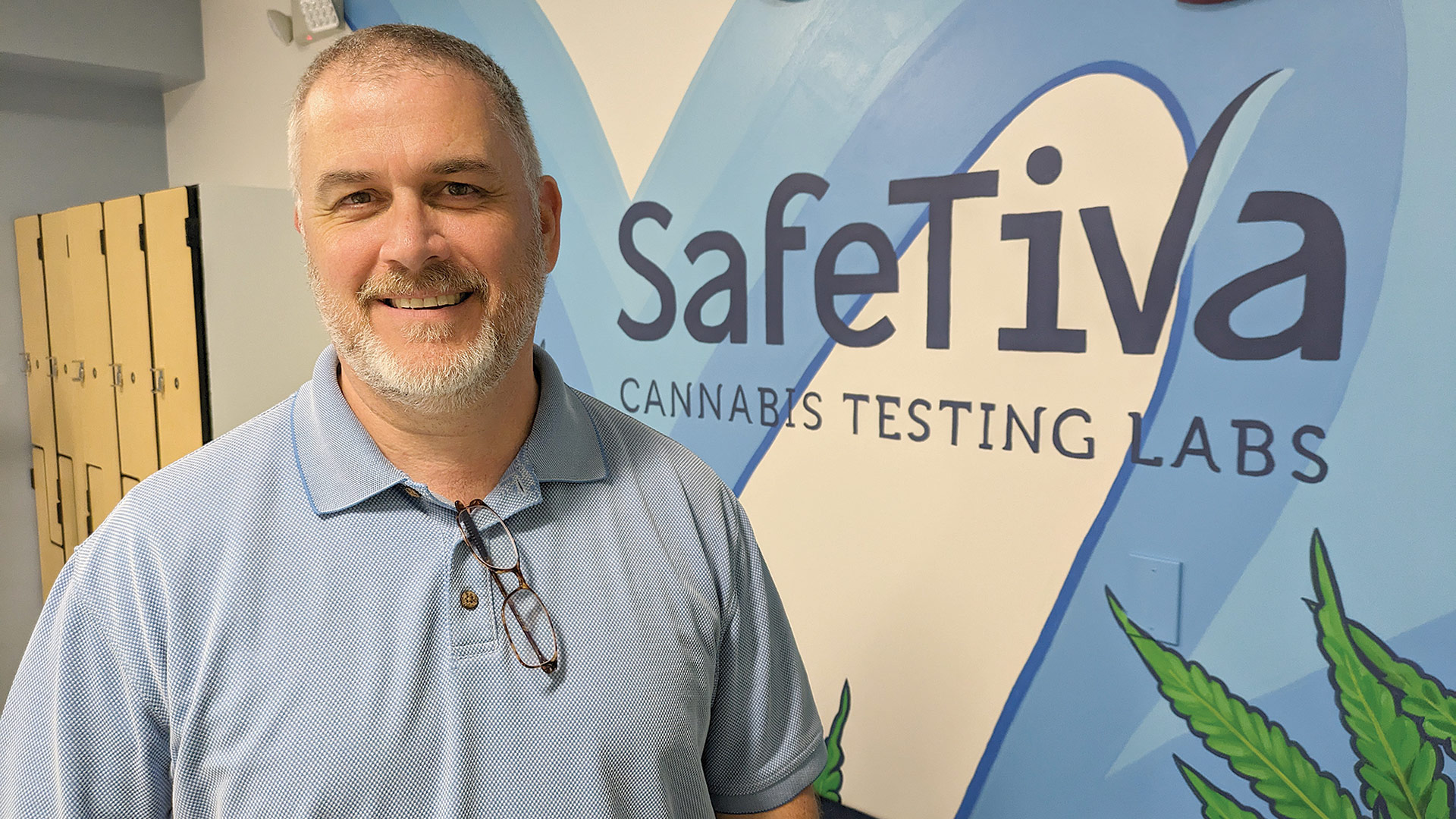
Steven Lynch says cannabis businesses doing things the right way and for the right reasons will survive any contraction in the sector.
“There’s a survivability factor we’ve written about from day one. We were the second adult-use-only store in Massachusetts to open [in Lee], and there’s definitely a sort of glory time which happens with every new market, where the demand outstrips the supply, and businesses are just opening their doors and slinging weed,” he said. “They saw pie in the sky, and they have not operated their business with real-time controls over every dollar they’re spending. It’s a tough thing.”
Simply put, too many cannabis businesses in Massachusetts based their business plans on supply-and-demand figures that no longer exist, he added. “There’s a lot more competition. The pie is always growing, but competition is far outstripping the growth of the pie, so you’re seeing price compression.”
Williams agreed with Shubrick that a dispensary must be run like a business from day one, with hard decisions around every dollar spent — or the enterprise will fail.
“If you’re at the point where you have to readjust everything, it’s almost too late,” he said. “Really tough business decisions need to be made across the board. We’re seeing how other companies are failing, and one of the first analyses is what it takes to be profitable as a standalone dispensary. A bunch of different people have run a bunch of different numbers, and when it comes down to it, the consensus is $6 million.”
So, how does one succeed in this environment? Shubrick has some ideas.
“At Six Bricks, we have a clear focus on who the customer is, and we’re focused on our competitive advantages, which are the cannabis experience over transaction, having knowledgeable staff, and being an option for conscious consumers who want their dollars spent close to home,” she explained, noting that the pandemic years taught people the value of spending their money with local businesses, and those lessons could carry over to cannabis. “There’s still a lot of work to be done with social equity for businesses, but consumers can support more a more equitable industry by what brands they support and where they spend their money.”
Erik Willaims
“There’s a lot more competition. The pie is always growing, but competition is far outstripping the growth of the pie, so you’re seeing price compression.”
Steven Lynch, director of Sales and Marketing at SaveTiva Labs, agreed about the appeal of strong, local brands.
“I see a lot of parity with when the big-box stores, the Home Depots and Lowe’s, first came to the market. It was great because they had these big stores you could go in, but ultimately, you’re not going to get the service that you’re going to get from your local hardware store,” he told BusinessWest. “So you saw a lot of stores go away initially, but then you saw a whole wave of small mom-and-pops come back into the market because they did things completely from a quality, service, and educational standpoint.
“I think that’s what’s going to happen in cannabis,” he went on. “The people who had no business doing this, or got into it for the wrong reasons, will fall by the wayside, and the people that that are doing it for the right reasons, the right way, are going to continue to flourish.”
Blazing a Trail
For Shubrick, ‘the right way’ is reflected in the 6 Brick’s tagline, “people, plant, and purpose.”
“People — how can we help show that cannabis can be a part of an individual’s wellness routine? Plant — how can we make this more of a cannabis experience than a transaction?” she explained. “And lastly, purpose — we want to be a viable option for those in the community that want diversity of price point and diversity of products. I can’t overemphasize the community aspect of it. You can try marketing to pull customers out of Connecticut, but it’s the local community that’s going to show up every day, whether they’re buying a pre-roll or a present for a friend.”
Though Springfield’s licensing process was slow and rigorous, she noted, it’s a plus for operators that there’s not a shop on every corner, as opposed to cities like Holyoke and Northampton that allowed many more licensees.
“We’re the third-largest city and have only four dispensaries; that does prevent what we’ve seen in Worcester and Northampton, which is a race to the bottom in terms of providing a product. Many customers are saying they want it as cheap as possible. The reality is, that hurts the entire supply chain and drives prices so low, it compromises quality.”
That ‘race to the bottom’ has occurred in other states where cannabis was legalized, but the assumption is that the market will eventually level out — and not everyone will survive.
“A lot of folks made the assumption that cannabis companies just open the doors, and people show up,” Shubrick said — and at the earliest-opening shops, like NETA in Northampton, they certainly did. “I never anticipated 100 people show up on day one. I knew it would be a slow climb. The first 15 companies to open their doors, some of them now have to make a comeback because the product wasn’t great or they didn’t have the right people.”
It’s not an unusual track in other business sectors, she added. “Car dealerships and restaurants rise and fall, and the same is happening in cannabis. A lot of naive operators thought they were untouchable because there was this pent-up demand and a thriving black market. But that’s not the case. Couple that with the realities of 280E, and this is not for the faint of heart.”
She was referring to Section 280E of the Internal Revenue Code, which forbids businesses from deducting otherwise ordinary business expenses from gross income associated with the ‘trafficking’ of Schedule I or II substances, as defined by the Controlled Substances Act; cannabis is a Schedule I substance.
According to the National Cannabis Industry Assoc., “federal income taxes are based on a fairly simple formula: start with gross income, subtract business expenses to calculate taxable income, and then pay taxes on this amount. Owners of regular businesses often derive profits from these business deductions. Cannabis businesses, however, pay taxes on gross income. These businesses often pay tax rates that are 70% or higher.”
“Most companies spend a dollar to get $1.10, and you’re ten cents up,” Williams said. “Here in the cannabis business, because of the 280E tax situation, you need to make $3.50 for every dollar you’re spending just to break even. That changes the math in a really big way.”
It also changes the way cannabis companies do business, he added, returning to those earlier thoughts about closely tracking all spending. “Being tight with advertising dollars and watching ROI on every dollar you’re spending is super important.”
Canna’s model, as a vertically integrated company that cultivates product as well as selling it, helps stem those tides, he noted. “Doing cost analysis is a little different, but you also are putting things through your stores at much higher margins. If you’re controlling your supply, you have more control over your business. We’re seeing it happen right now.”
Rolling with the Changes
Shubrick said it was worth navigating a thorough licensing process to open a cannabis shop, alongside her family members, in her hometown. “If I wasn’t selected in Springfield, I wouldn’t have picked up and gone to another city or town.”
It’s an example of the thoughtfulness that must accompany entering a very challenging cannabis marketplace in Massachusetts, especially now.
“Companies come in, and they’re not profitable, and they can’t pay back the tax bills. So they have to close,” Williams said, echoing not only the stories of the Source and Trulieve, but other casualties to come. “But their consumers don’t go away; they go elsewhere. So the lesson from the contraction of the market has always been that the survivors are going to do better long-term.”
Weathering the Storm: a Resilient Path Forward
By Meg Sanders
We are at the precipice of a significant contraction in the cannabis market, not confined to Massachusetts alone, but reverberating across the U.S. and even globally. As business owners navigating this turbulent landscape, it is essential to recognize the imminent challenges — in particular the ones staring down cannabis across the Commonwealth — prepare to face them, and, more importantly, cultivate a hopeful vision for the future.
Let’s begin with third-party vendors, the cogs in the machine that keep your cannabis enterprise running smoothly. We must ask ourselves: how do these vendors weather the storm if they lose 30% of their business suddenly? If a small vendor employing just six people experiences a 20% revenue loss from a key account, what could that mean for the business?
These are not mere speculations. These scenarios are unfolding right now, causing ripples across the industry. It’s a risk-management issue that warrants our immediate attention.
Meg Sanders
“It’s critical to identify how exposed our vendors are to the same downturn we’re grappling with, especially if their clientele consists primarily of cannabis companies.”
As we sail through these choppy waters, we mustn’t lose sight of the bigger picture. We need to question the depth and financial security of our vendor base, especially since many struggling businesses might not be able to pay their bills. The aftershocks of such downturns typically hit marketing, advertising, and street teams the hardest. But what does that mean for us, the business owners who rely on these very vendors?
Imagine your vendor pool as a ship’s crew, each playing a vital role in keeping your business afloat. What happens if your vendor’s ship starts sinking? The ripple effect could capsize your own vessel, and that’s a scenario we must guard against.
Indeed, there’s a sense of camaraderie in this industry. We are all in the same boat. When one sinks, we all feel the tremor. It’s critical to identify how exposed our vendors are to the same downturn we’re grappling with, especially if their clientele consists primarily of cannabis companies. The domino effect could span from your point of sale to merchant services, banking, all the way down to your graphic designer.
We have to play the long game, keeping our eyes on the horizon and the changing tides. Let’s envision a situation where you’re sourcing packaging from a company whose revenue is all cannabis-related. What happens when it loses 20% of its business overnight? What does that mean for your buying abilities, purchasing decisions, their supply chain, and your overall purchasing power and profit and loss (P&L) statements?
To chart a path through this storm, we must adopt a three-dimensional approach to risk management, particularly for those selling cannabis products wholesale to local companies. The strain on accounts-receivable departments is a testament to the rising pressures within the industry. Payments aren’t arriving on time, and some aren’t arriving at all, affecting everyone from packaging and label companies to small cannabinoid providers and cultivators.
But amidst this storm, there’s hope. And here’s the silver lining: we can mitigate these risks with strategic planning and robust backup systems. By identifying alternative vendors, knowing their offerings and lead times, we can prepare for any disruptions in our sensitive systems. We need to ensure that we’re not left without a resource simply because we didn’t think far enough down the track.
This contraction isn’t just a challenge; it’s an invitation to innovate. To think differently. To challenge the status quo. Industries shift, technologies evolve, and we must keep pace. We need to think about all the ways a contraction impacts everyone: vendors, landlords, municipalities. The effects when a cannabis company exits a market or closes its doors are far-reaching.
Even as we’re witnessing companies in Massachusetts entering receivership, it’s not a time for despair. It’s a time for planning, for taking stock of where we stand and where we aim to go. Think about your ‘what-ifs,’ and devise your backup plans. Be ready to replace a critical item on your menu if it goes away. Be prepared to find an alternative source if your main provider hits financial turbulence.
This is not a doom-and-gloom narrative. It’s a story of resilience, of weathering the storm, and emerging stronger. It’s about recognizing opportunities amidst adversity, shoring up your P&L, and seizing the chance to negotiate better pricing with your vendors. Many might be willing to partner with you to push through these challenging times in that way, and the worst thing that happens is they say no. That’s just good business practice, no matter the state of the industry. Always make sure you’re checking where every dollar is going, from your expenses to getting quotes on best prices.
So, in these uncertain times, let’s remember one thing: hope is not lost. Even in the face of contraction and economic downturn, there’s an opportunity for those vigilant and ready to adapt. And as we navigate this storm together, we can create a more resilient, more robust industry ready for a brighter future.
We are, after all, in this together.
Meg Sanders is CEO of Canna Provisions in Holyoke and Lee.



